As part of the implementation of the action plan for the social economy, the Commission adopted a proposal for a Council recommendation on developing social economy framework conditions on 13 June 2023. The Recommendation was subsequently adopted by the Council on 27 November 2023.
This legal act recommends Member States to design and roll out strategies that recognise and stimulate the social economy. This page provides some useful information on how these strategies can be effectively developed and implemented.
Why are social economy strategies needed?
For the potential of the social economy to be fully realised, the right policies and legal frameworks need to be in place. These need to be tailored to the unique characteristics of the social economy and address the specific challenges these organisations face. Effective frameworks should include a variety of support measures, creating a financial, administrative, and legal environment that meets the needs of the social economy.
A strategy is a forward-looking document that outlines a clear vision with specific goals. It serves as a roadmap, providing the policy steer and political commitment needed to establish these frameworks. Such strategies may encompass regulatory measures, policy initiatives or adjustments, and other actions to support the contribution of social economy organisations to social and environmental goals and to enhance their economic and industrial value.
The five building blocks

A comprehensive strategy for the social economy should take into account five essential building blocks:
- Vision and objectives
- Administrative and institutional set-up
- Consultation mechanisms
- Visibility and recognition
- Monitoring and evaluation
Watch the video below for an overview of the five building blocks. We briefly explain each of them further down this page.
If you would like to learn more about the building blocks, as well as the success factors and potential pitfalls to avoid in a social economy strategy, we recommend reading this thematic discussion paper, which was prepared for a mutual learning activity organised for public officials in March-June 2024.
1. Vision & objectives
A vision for the social economy defines its purpose, direction and potential impact on society and the economy. It encapsulates what the social economy is, its role and importance in achieving policy goals such as employment, social inclusion and sustainability. Objectives, on the other hand, are concrete, actionable targets that translate this vision into reality. They provide a clear way forward with specific, measurable and time-bound indicators to track progress. A robust vision and well-defined objectives are essential for recognising the potential of the social economy, securing dedicated resources and promoting innovative business models that benefit communities. These elements lay the groundwork for a successful strategy.
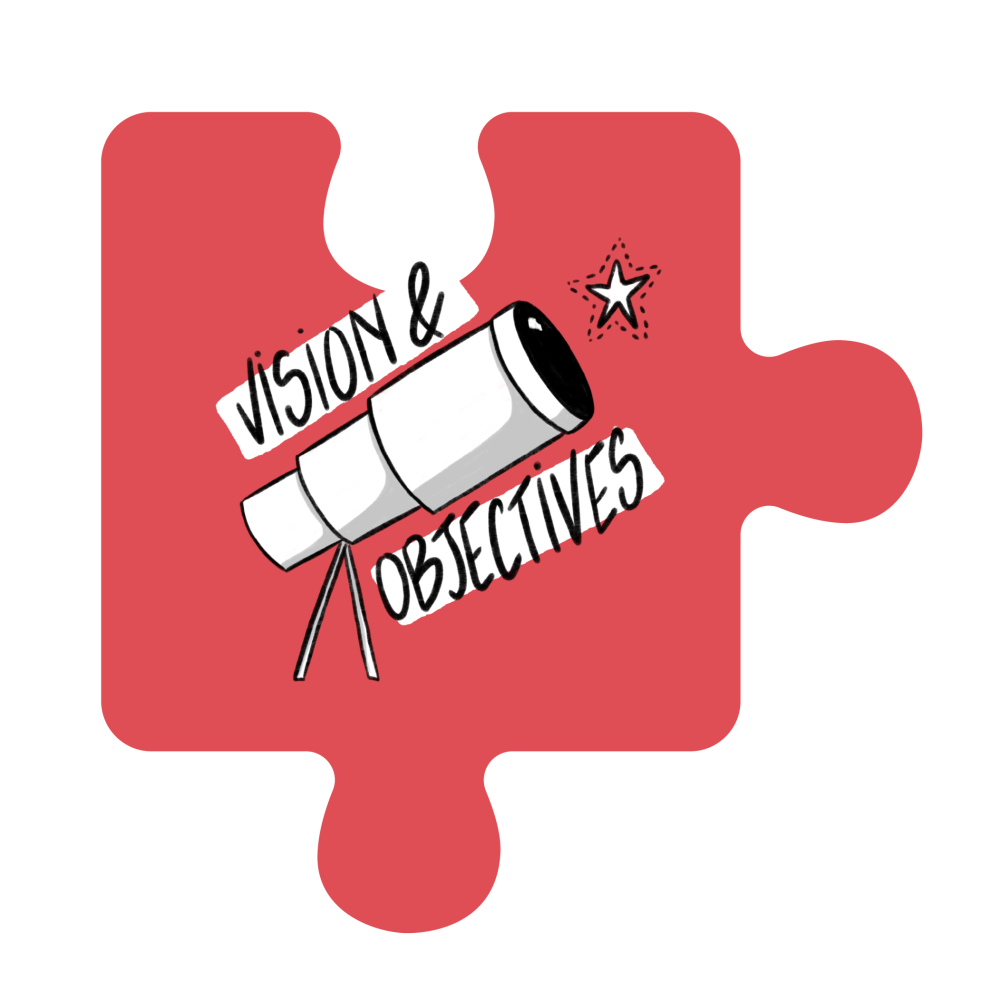
2. Administrative & institutional set-up
A well-structured administrative and institutional set-up is crucial for the effective support and coordination of social economy policies and initiatives across ministries. This often involves dedicated units or coordinating bodies within and across ministries, such as labour, economy or social affairs, to ensure that the social economy is an integrated part of national policymaking. These arrangements not only reflect the ambition and priority given to the social economy, but also facilitate effective stakeholder engagement and resource allocation. In countries with decentralised competences, regions, local governments and municipalities can have significant autonomy and can play an important role in supporting the social economy directly.
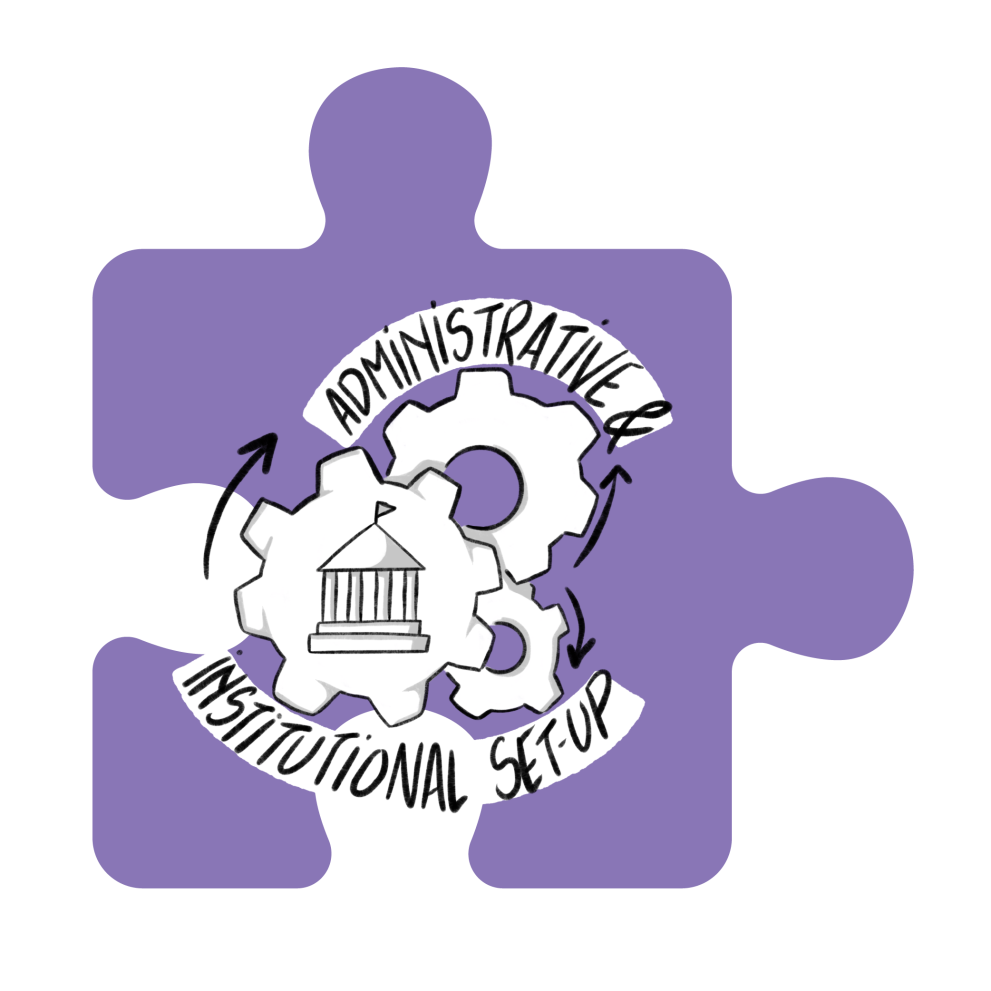
You can find more information on these first two building blocks, including examples of how Member States have applied them, in the following flash report of a mutual learning workshop organised in March 2024.
3. Consultation mechanisms
Effective stakeholder engagement comprises the active involvement of all relevant parties, such as social economy organisations, financial institutions and researchers, in the design and development of strategies. A collaborative approach ensures that the different needs and perspectives of stakeholders are taken into account and fosters a sense of ownership and commitment to the strategy's goals. Such engagement helps to build trust, facilitates the exchange of ideas and enables the co-creation of innovative policies that meet the needs and objectives of the social economy.
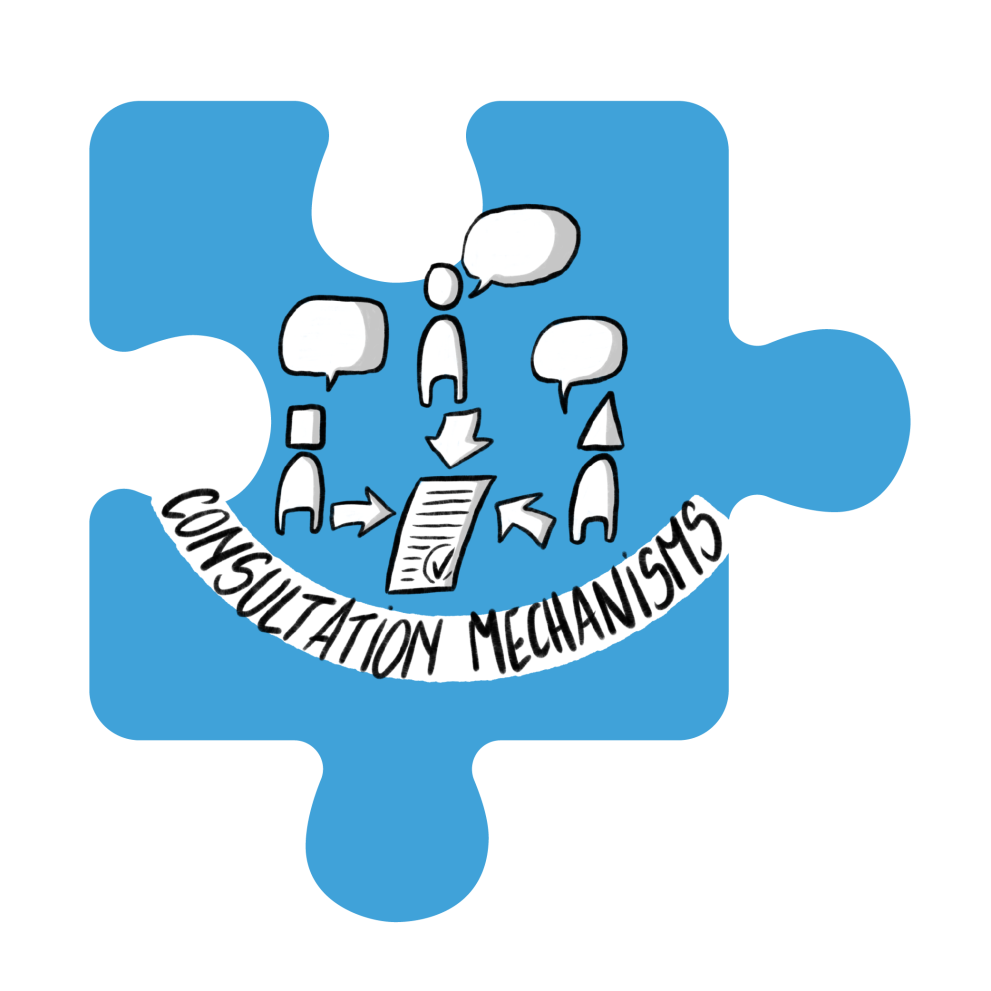
4. Visibility & recognition
Increasing the visibility of the social economy and its impact helps to promote a wider recognition and understanding of the social economy and to attract more support from the public, policy makers and potential investors. This involves promoting the achievements of social economy organisations through various channels such as the media, public events and awards. The collection and dissemination of data and statistics on the social economy ecosystem is also a powerful tool for increasing visibility and demonstrating value to society and the economy.
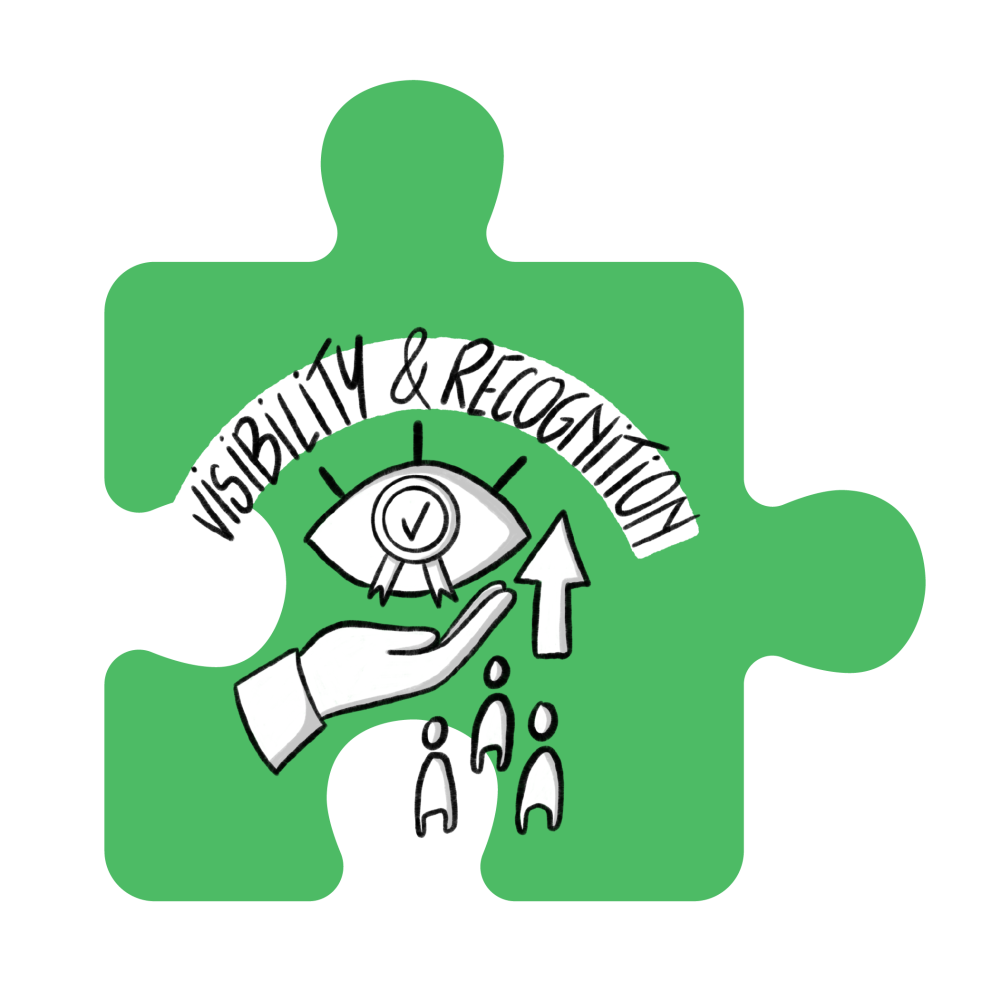
Legal frameworks for the social economy also help to increase its visibility and recognition. Every EU country has adopted at least one law on specific legal forms of social economy organisations, with some having national framework law for the social economy as a whole. These frameworks can support the vision and objectives set out in social economy strategies and provide a legal basis for an array of complementary policies and public programmes.
To learn more about legal frameworks for the social economy, explore the videos and publications below.
5. Monitoring & evaluation
A robust monitoring and evaluation plan includes performance targets and indicators that are aligned with the key objectives and actions of the strategy. Effective monitoring starts with policy objectives that are specific, measurable and time-bound. The selection of appropriate indicators is also important. These can be short-term and output-oriented, such as the number of people trained or social enterprises set up, but also long-term, measuring outcomes such as sustained improvements in employment and income. Putting in place data collection mechanisms, whether through official statistics or evaluation exercises, is also key.
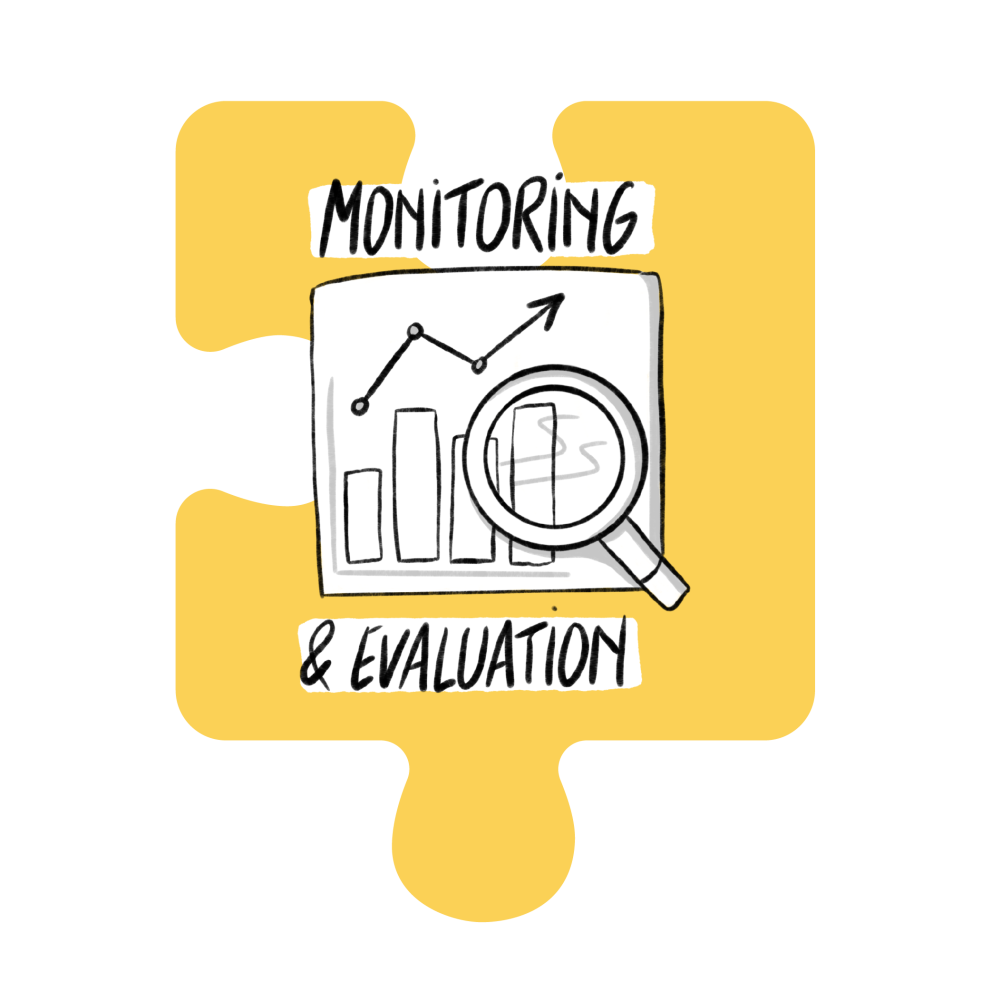
You may find more information on these last three building blocks in the following report of a mutual learning workshop organised in April 2024. Further down you can also find a flash report on a mutual learning workshop on legal frameworks for the social economy organised in June 2024 .
Summary
Looking for a quick summary of the information provided in this page? Have a look at the document below.
- General publications
- 17 July 2024
This document provides an overview of the building blocks for developing strategies to promote and support the social economy, based on the findings of workshops organised by the European Commission. The document highlights the importance of a clear vision, effective stakeholder involvement, robust administrative structures and increased visibility and recognition of social economy organisations. It also stresses the need for comprehensive monitoring and evaluation mechanisms to measure the effectiveness of social economy strategies. Each building block is accompanied by examples of good practice from Member States.
State of play
Some countries and regions have already developed social economy strategies that can inspire other public authorities. Below you can find a map showing which EU countries have developed strategies for the social economy and social enterprises. The information on this map is not exhaustive - let us know if any important updates are missing!
If you are curious about the practical details of designing and implementing a strategy, take a look at the discussion papers further down. These papers cover the social economy or social enterprise strategies in Finland, Ireland, and Île-de-France.
Assess social entrepreneurship policies in your country
The Better Entrepreneurship Policy Tool is a free online self-assessment and learning tool designed to help policymakers, practitioners, and stakeholders create and implement effective policies and programmes that support social and inclusive entrepreneurship. It helps users to assess their current policies, identify areas for improvement, and develop dedicated strategies. The tool includes self-assessment questionnaires, policy guidance notes, and case studies to support policy design.

